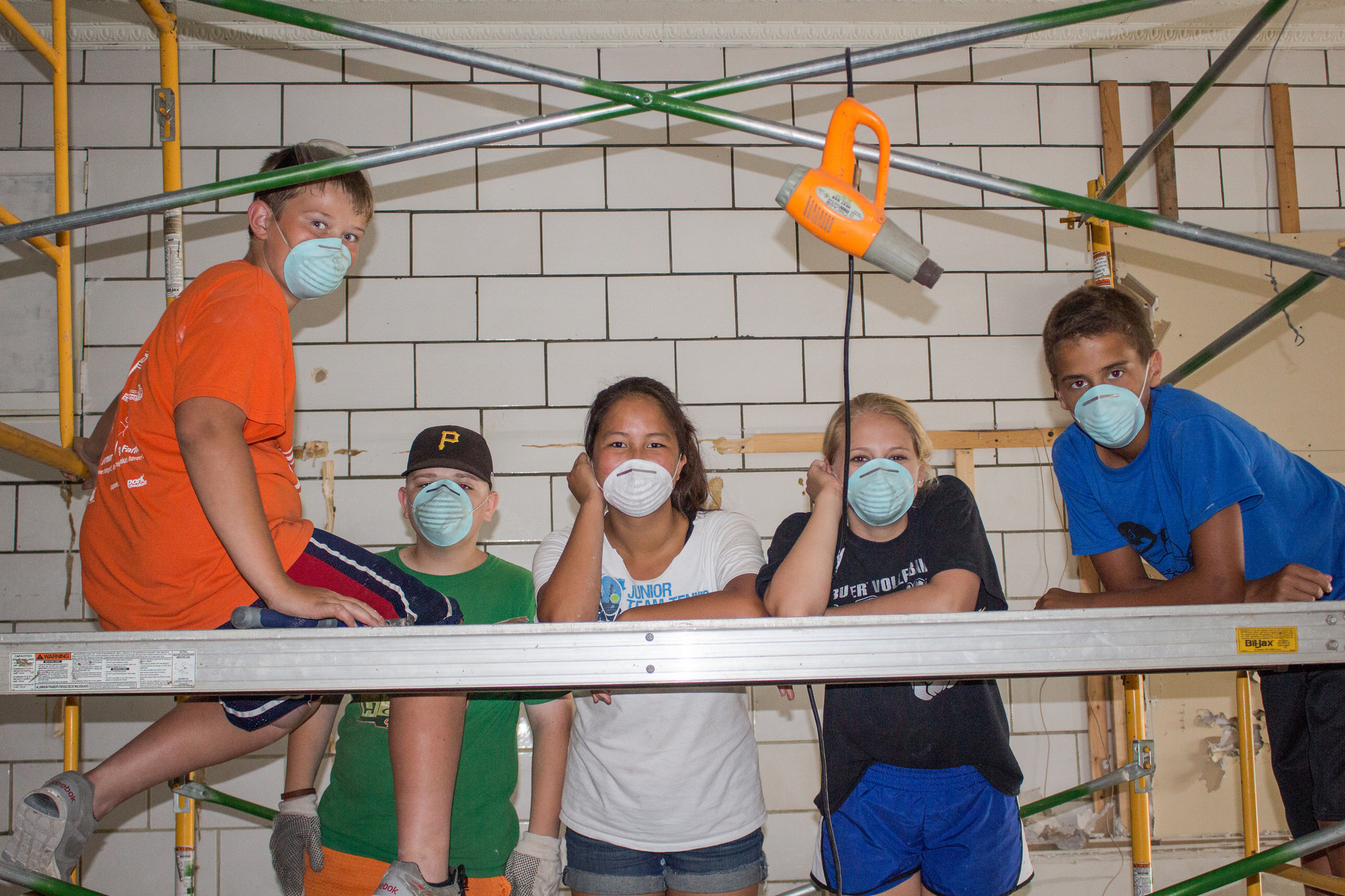30 Ways to Make Your Mission More than a Trip
Jesus’ invitation to serve and love others isn’t just for the trip. Your mission is much bigger. So how will you bring the mission trip experience home with you and let it become part of your everyday life? The following are just a few ideas to get you started.

Share Your Story
The story of what God is doing in and through you and the community you served is worth sharing! Bring your trip home with you in how you tell your story. Here are a few ways you might share:
- Plan a church gathering where you tell about the meaningful memories from your trip from the front of the room. You might incorporate some of the ideas below in your sharing.
- Rather than a play-by-play of what happened, write about a significant event on your mission trip. How did you feel? What did you learn?
- Write a collection of moments, perhaps posting on social media or maybe simply writing on small slips of paper. Make each memory really short – perhaps just a sentence beginning with “That moment when…” Over 30 days, write 30 memories, then compile them all in one place. OR you might do this with your entire group, each person writing a couple memories.
- Draw, paint, design or create something that does less telling and more showing. Share what that it means with the people around you.
- Create a slideshow and share it in person or on social media.
- Share your story by emailing it to stories@youthworks.com
Process Your Trip
Mission trips are eye-opening experiences. You might have unresolved emotions, thoughts or hopes. Don’t forget about those. One of the best ways you can make your mission extend beyond the trip is to keep wrestling with the things you experienced during your trip. Here are some ways you can do that:
- Talk about your trip. Any of the above ideas about sharing your story could apply.
- Set aside some personal time to think or write about what you experienced.
- Ask someone who you enjoy talking with to ask you lots of questions about your trip. THESE ARE SOME GOOD PROCESSING QUESTIONS you might ask.
- Talk to God about the experience. Make it an ongoing conversation that includes your hopes, fears and questions.
- Don’t be afraid of hard questions. Whether you’re in a conversation, journaling or praying, voice those difficult things that you still wonder about. There might not always be easy answers, but asking is often the beginning to deeper understanding.
- Seek out resources that help you learn more about an issue you encountered. Look up terms online, ask around and find information on that topic. Feed your passion – or your curiosity – with good information.
Serve Others
When you think of mission trips, you probably think of service. But what if service spread beyond your trip? What if serving others was part of your everyday routine? It can be, but it takes some intentionality. Here are some ideas to get you started. You don’t need to try to do all these; just focus on one or two:
- Ask about needs at church or school, then respond intentionally to what you hear.
- Quit something. Sometimes service is hard because we just get too busy. Try saying “no” to something so you can purposefully say “yes” to serving others.
- Repeat the same type of service you did on your mission trip. That might mean doing a work project for someone in need or gathering friends to lead a kids club at church or even cooking to serve others.
- Start a community garden and share the produce with a local food shelf or even people you know.
- Serve at home. Sometimes we forget to serve the people closest to us, but they should be the ones who best experience our love! Clean, cook or run errands for those close to you.
- Donate your stuff. Not just what you’re tired of, but maybe something you will miss, because you know it will be a blessing for someone else to have. Serve with your stuff.
- Invest your gifts. Identify things that you are especially good at and find a way to use those gifts to serve others.
- Give your time. Consider who would be served well by your presence. Visit a nursing home, someone who is sick, or someone who might be lonely or in need of a good conversation. Your time is a valuable. Share it.
- Encourage someone. Write a note or go out of your way to tell them what you appreciate about them.
- Continue to serve the community you took a mission trip to. Speak about them in respectful ways. Consider how you can continue the relationship you began, perhaps by returning to the same community next summer… or sooner!
- Pray for others. Consistent prayer is one of the simplest but most meaningful ways you can serve.
- Be creative. There are infinite possibilities of ways you can love and serve others. Think outside the box to show others Jesus’ love.
Deepen Your Faith
Of all the things you could bring home with you, the most important is a deeper relationship with Jesus. Here are some ways you can deepen your faith after the mission trip is over:
- Keep doing Devos. Setting aside a bit of time to talk with God each day may be the best thing you can do for your spiritual life.
- Pray throughout the day. Keep having little conversations with God. As you remember that God is always listening, you will begin to recognize God’s constant presence in your life.
- Watch for Yea God’s. Take time at the end of each day to offer praise for the places you saw God at work during your day.
- Seek out Christian community. God created us to need each other, and our spiritual lives will be strengthened when we have others walking alongside us. Make some decisions that lead you toward others who can encourage your faith.
- Give things up. Think about the barriers that block you from a fuller relationship with Jesus. It might be busyness or addiction or bad choices or even an attitude. Ask yourself, “What’s blocking me from a full relationship with Jesus?” and “What am I willing to give up to knock down those barriers?”
- Follow your convictions. You might believe the poor should be fed or people should forgive or service is important, but what do your actions say? Faith that doesn’t do anything is really just a bunch of ideas. Let your faith come alive in the way that you live.
So now that you’ve read this list, what will you do? Copy, paste and print out one bullet point from this list that you want to commit to doing – or take a screen shot or write it down where you’ll see it. How is God inviting you to make your mission more than a trip?


